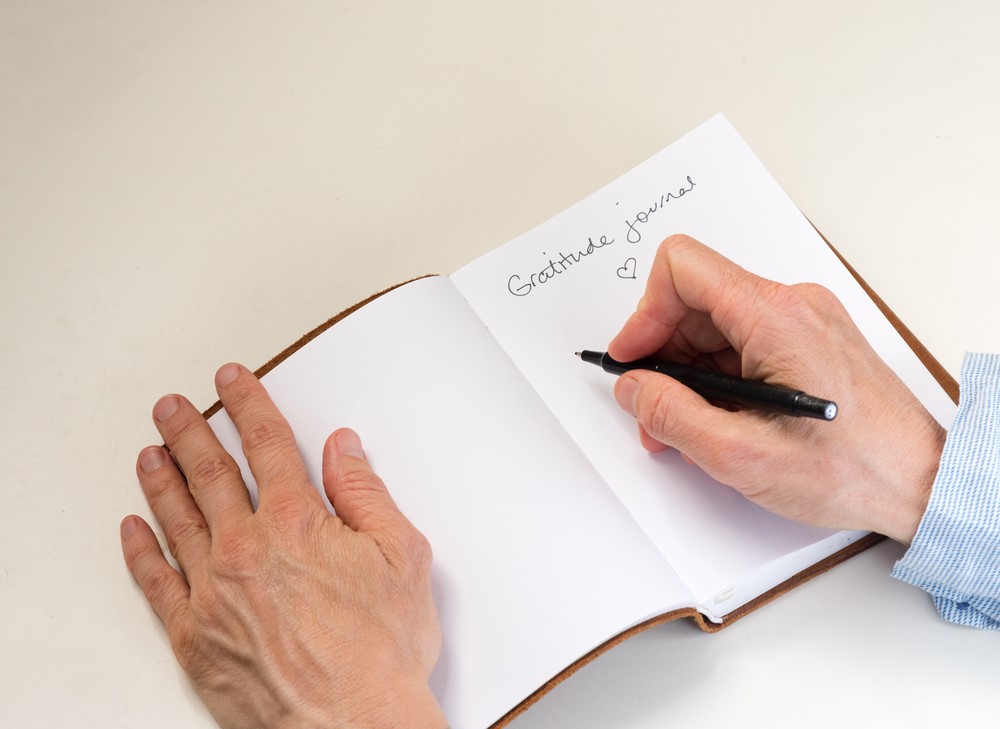
Who hasn’t owned a journal at some point in their lives? The practice seems as old as the hills and something that every generation tries out in some way or another. Even with all our electronic gadgets these days, many of us still prefer picking up a pen and a notebook, and journaling the old fashioned way. In a previous post, we talked about self-care journaling for caregivers, so today we’re looking at journaling for seniors instead.
We’re going to tackle three key topics here – the benefits of journaling, the risks, and some journaling approaches that can be powerful.
Talking about the risks of journaling might seem a little strange. Journaling is meant to be a powerful practice, right?
While that’s true, some journaling practices can make things worse, not better. Being aware of these can help you to avoid the biggest issues for yourself and for anyone you’re supporting.
The Benefits of Journaling
Journaling offers some serious benefits – particularly for self-growth.
Journaling Allows You to Step Back
Many people find that the practice helps them to step back from the moment and to evaluate their own thoughts, emotions, and behaviors. Journaling also offers the chance to be deeply honest about what you think and feel, in a way that you couldn’t when talking to any other person.
You Can Explore Situations More Fully
Journaling can also be an interesting way to really explore a situation.
For example, a senior might use journaling as a tool to be happier and more present in their life, while someone else might use journaling to help them achieve their fitness and work-related goals.
Journaling works well here because we spend so much of our lives simply reacting. We move from one situation to the next with little time to reflect or plan. Having this type of reactive approach does us no favors, as we often ignore problems until it’s too late or we miss easy solutions.
With journaling, you get to step back from the reactive approach and spend some time writing and thinking about whatever comes up. The advantages of doing so can be truly amazing.
Journaling Can Improve Mental Health
Then there are the mental health benefits.
Like mindfulness, journaling is often linked to increased happiness and a lower risk of depression. Journaling can help in recovery from depression, anxiety, and other issues as well. This is partly why therapists often recommend journaling as a tool.
Journaling also helps to decrease stress. This is partly because you’re doing something productive, rather than wallowing in what you feel.
There’s also a theory that writing about stressful emotions and events helps you to come to terms with them. As a result, the events lose some of their power over you.
For example, a senior might start off by writing about loneliness, but end up thinking and writing about family and connections instead. Doing so could help the senior to realize that they’re not as isolated as they feel.
You Can Train Your Brain
Journaling can be a way to train your brain to see things in a better light.
Gratitude journaling, for example, focuses on finding new things to be grateful for. This often makes it much easier to notice the little precious moments in your day-to-day life, ones that would be missed otherwise.
Similarly, having a problem-solving approach in your journaling can lead to a similar problem-solving approach in other areas of your life.
The Risks of Journaling for Seniors

Despite all the benefits, journaling does come with some risks too. The practice can even be harmful in some situations.
It Is Very Introspective
The first issue is that journaling takes you out of life and puts you in your head. Doing this every so often can be helpful, giving you a different perspective on what’s happening and helping you to work through challenges.
However, spending too much time in the practice easily leads to overthinking.
This could be a particularly big problem for seniors with a lot of time on their hands. They might find themselves spending more and more time writing in their journal and thinking about their life, and less time looking for activities to do and ways to enjoy themselves.
Some regular journal users find themselves thinking about how they’ll write about an event in their journal later – rather than being in the moment as it is happening. This pattern can easily be a problem.
It Can Promote Negative Emotional Loops
Journaling for seniors can also lead to negative emotional loops.
For example, if the senior’s adult child wasn’t able to come to visit one week, the senior might start journaling through some of their emotions about the situation. Doing so can be a useful way to get negative feelings out into the open and dissipate them, but it’s also easy to end up going down the rabbit hole with emotional reactions, reinforcing them with every word written.
This issue is even more significant for elderly parents who are already overly negative.
You May Reinforce Your Own Stories
Journaling can be a way to understand a situation better, to see other people’s points of view, and to grow.
Unfortunately, this isn’t always how it works out. Some people end up getting stuck in their own perspective instead and use journaling as a way to blame, rather than to seek solutions.
This isn’t so surprising.
After all, writing in a journal is basically a one-sided discussion. You’re the only participant, so there’s no one to contradict your view of the situation. This can be a problem, as we all have blind spots.
It’s far too easy to focus on everyone else’s role in a situation and entirely miss your own.
Types of Journal Activities

The simplest way of journaling is a stream of consciousness, where you write down whatever comes into your head. This is the style that many of us played around with as teenagers.
However, some of the biggest risks of journaling come from this practice.
After all, when you’re writing whatever comes to mind, it’s easy to veer off into the negative. A simple way to avoid the problem is to look for a more structured journaling approach instead, like the following examples.
Memory Journaling
Memory journaling has one focus – recording memories. This can be done in many ways.
This is one of the best types of journaling for seniors, as memories often fade with age. Recording them in some way helps the senior to re-live some of their best moments. The journal could also become an important keepsake for future generations.
A simple approach is to take a regular journal, perhaps one with a few lines or half a page per day. For each day, the senior can record moments that stand out to them. Little things that make them smile or appreciate life.
This type of memory journaling acts as a mindfulness exercise too, drawing focus back to the present moment and helping people to find joy in the small things.
Another approach is to use a notebook, of any type, and record memories from the past. This could be a wonderful activity for a senior and a caregiver to do together, with the senior talking about their memories and the caregiver writing notes.
You don’t just need to stick with words either.
You could add some scrapbooking elements to the process too, perhaps by using an art book and adding photos and newspaper clippings at various points. A visual approach like this could be perfect for seniors who don’t feel like doing much writing.
If you love this idea, check out the Junk Journaler’s Delight Box from Cratejoy. That subscription box comes with a fantastic mix of vintage materials that could be used for journaling, scrapbooking, or in many other situations.
Gratitude Journaling
Gratitude journaling focuses on the positive. It often involves writing down the things that you’re grateful for each day – with the goal of finding new and interesting things to be grateful for.
This is a fantastic way to focus on the good parts of life.
While you can use regular blank journals for gratitude journaling, guided gratitude journals often work better. These provide prompts each day that go beyond the typical question of ‘what are you grateful for?’.
Guided Journals
There are other types of guided journals too.
One example is The Morning Sidekick Journal, which focuses on wellness. It includes content, illustrations, and prompts, to help users to stay on top of their goals.
There are also faith-based options, like this Prayer Journal for Women.
Guided journals are often powerful, as they give users a direction to focus on. This decreases the chance that the senior will get lost in negative emotions. Many are also exceptional at helping users to feel better and more engaged in life. Those effects might be perfect for any senior who is struggling emotionally.
Other examples to look at include the following:
- The Best Journal Ever (a daily positivity journal)
- Start Where You Are: A Journal for Self-Exploration
- 642 Things to Write About
- Getting to Good
- Present, Not Perfect: A Journal for Slowing Down, Letting Go, and Loving Who You Are
Final Thoughts

Journaling does have many more benefits than risks.
It’s often a way for people to see themselves more clearly, to be more self-accepting, to work through challenges, and to practice gratitude.
The most important thing is just to keep your eyes open. Whether you’re journaling yourself or encouraging a senior family member to do so, keep an eye out for signs of increased negativity, moodiness, or excessive introspection. Such responses can all be an indication that journaling could be causing problems.
It can also help to set some goals in place before getting started with journaling. What do you (or the senior) hope to achieve? What’s the best way of going about this?
What guidelines can you put in place to minimize risks and promote the best outcomes? For example, if the goal is personal growth, it’s important to have a solutions focus when writing in your journal, rather than blame. If the goal is gratitude, then you might not choose to write about the negative at all.
Feeling Overwhelmed?
Check out our Caregiving Consulting service for personalized support and guidance.


Leave a Reply